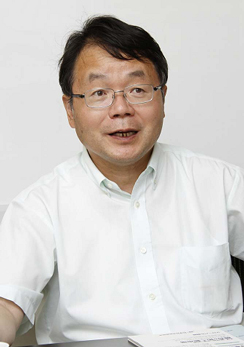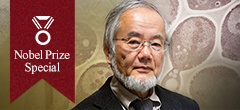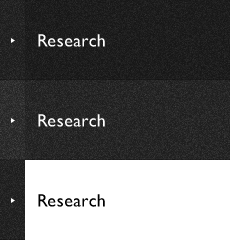I am extremely honored to learn that I have been selected as a Thomson Reuters Citation Laureate. I first began researching yeast autophagy twenty-five years ago. At that time, everyone asked, "What's autophagy?" Since then, autophagy has grown into a very large field. If the yeast research I modestly began has helped to contribute to this development, I am both deeply honored and wish to give thanks for the various ways I have been fortunate in my career until now. Citation frequency is in one sense a barometer of popularity. I entered this profession with the wish to do things that others were not doing. It wasn't until 2002, ten years after we began, that our papers began to be cited, eventually surpassing 500 citations per year. The current young generation has to live through a difficult era, but I hope that they do not chase after what is popular and stay faithful to their own interests. I hope that they have confidence in their own ability to judge and can avoid being confused by the constant stream of information. Contemporary biology is founded on the mastery of a variety of methodologies. I have been blessed with wonderful research colleagues. Therefore, this prize was most certainly not given to me as an individual, but to my entire research lab. Both Professor Tamotsu Yoshimori and Professor Noboru Mizushima are leading the world in research into mammalian autophagy, and there are many others who have left the research lab to become independent and are working hard in their own fields. Finally I wish to express my sincere gratitude to the institutions that have supported my research, including MEXT's Grant-in-Aid for Scientific Research, the College of Arts and Sciences at The University of Tokyo, the National Institute for Basic Biology, and my current home, Tokyo Tech.
. Any information published on this site will be valid in relation to Science Tokyo.







